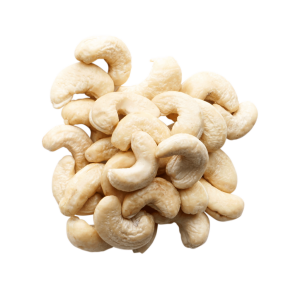This research project was funded by Global Cashew Council and led by Dr. David Baer from the U.S. Department of Agriculture, Agricultural Research Service, Beltsville Human Nutrition Research Center.
For the cashew industry, increasing ingredient use to create additional demand for pieces is one of the most important challenges now. Lower calories is one of the main objectives for the snacks’ industry now.
About the Cashew Study
Eighteen healthy volunteers were recruited to participate in this 9-week study. Participants consumed a controlled base diet supplemented with cashew nuts (42 g/day) during one treatment period of 4 weeks, or a controlled base diet with no-cashew supplementation during another treatment period of 4 weeks. Diet samples from the study, as well as feces and urine from eighteen volunteers, were collected during the final week of each intervention phase and analyzed for protein, fat and energy content. From these, researchers were able to determine the actual digestible energy content of cashews.
Study results showed that the available energy (calorie) content of cashews is 16% lower than that which is typically stated on current food labels and databases in the United States, including the National Nutrient Database for Standard Reference. These must be corrected in order to provide consumers with accurate energy values. Whereas the current reported energy value is 163 kcal/serving, USDA researchers found that the metabolizable energy content of a 28 g (1 oz) serving of cashews is 137 kcal.


